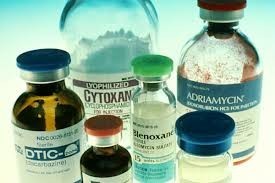A survey administered by the International Society of Oncology Pharmacy Practitioners (ISOPP) identifies key educational needs on biosimilars amongst its practitioners, including how to compare a biosimilar to an originator and how to manage switching [1].
Biosimilar education gaps in oncology
Biosimilars/Research
|
Posted 15/05/2020
 0
Post your comment
0
Post your comment

Education on biosimilar drugs is a critical means of improving physician and patient perceptions on biosimilars, thereby increasing uptake. A recent review concluded that clinician education on biosimilars is still needed [2], a sentiment echoed by the World Health Organization at the 17th Biosimilar Medicines Conference [3].
ISOPP is a global organization focused on oncology pharmacy care, which issued a global position statement on biosimilars in 2019 [4]. An ISOPP biosimilar task force recently conducted a survey of oncology pharmacy practitioners to identify unmet needs in biosimilar education.
Of the 363 members who received the survey, 75 completed the survey, in addition to 11 non-ISOPP members who also took part. The respondents were from a range of locations and the majority (72%) had been practising in the oncology pharmacy field for more than 10 years.
Almost three quarters of respondents said their institutions used biosimilars. Of those who did not, almost half said they were undecided about using biosimilars and a further 31.8% said biosimilars were unavailable in their country. Other reasons for not using biosimilars included physician resistance and financial reasons.
Half of respondents reported either frequent or very frequent use of biosimilars for cancer treatment and most said that their biosimilar use was guided by institutional policies or the local healthcare team. Just over 46% said biosimilar usage was guided by national policies or guidelines.
Prescribers working in low- and low-middle income countries said the decision to switch to a biosimilar was generally made by the treating physician and there was no standard policy on switching.
Only 35% said they could sometimes influence a clinician’s choice on whether to use a biosimilar, and even fewer (13%) said they could do this often or very often.
In terms of knowledge on biosimilars, over half (56%) of respondents said they had ‘good to excellent’ knowledge of preparation and administration of biosimilars, but said they rely heavily on package inserts and Micromedex, an online resource for medical information.
Although roughly half of respondents also rated themselves to have ‘above average to excellent’ understanding of the prescribing guidelines for biosimilars and a ‘relatively good’ understanding of the regulatory approval process, there were some key areas for improvement.
The top three areas in which participants reported educational needs were:
- Evaluating the comparative efficacy of a biosimilar to an originator (74.4%)
- Managing the switch to a biosimilar from the originator product (74.4%)
- Understanding medication safety issues in relation to biosimilar use (73.3%)
The top three challenges faced in obtaining education on biosimilars were:
- Limited financial support (38.4%)
- Heavy workload (31.4%)
- Inadequate educational resources (27.9%)
The results of this survey highlight target areas for educational initiatives. It also reveals challenges that prevent pharmacists from obtaining education, including lack of financial support and educational resources themselves.
ISOPP say they will use the results of the survey to develop educational material to improve oncology pharmacists’ knowledge of biosimilars. Doing so will enable them to assist, influence and educate other prescribers, encouraging biosimilar use within daily clinical practice, the authors say.
Conflict of interest
The authors of the research paper [1] declared that there was no conflict of interest.
Editor’s comment
Readers interested to learn more about biosimilar education are invited to visit www.gabi-journal.net to view the following manuscripts published in GaBI Journal:
Top developments in biosimilars during 2019
Pharmacovigilance, traceability and building trust in biosimilar medicines
Biosimilars in oncology: current and future perspectives
Readers interested in contributing a research or perspective paper to GaBI Journal – an independent, peer reviewed academic journal – please send us your submission here.
Related articles
Online education for diabetes specialists on biosimilar insulins
Pharmacists must be ready to take the lead on biosimilars
Biosimilar education for Canadian nurses
References
1. Chan A, Patel H, Siderov J, et al. Assessing biosimilar education needs among oncology pharmacy practitioners worldwide: an ISOPP membership survey. J Oncol Pharm Pract. 2020;26(3_suppl):11-21.
2. GaBI Online - Generics and Biosimilars Initiative. Biosimilars education still needed for US and EU clinicians [www.gabionline.net]. Mol, Belgium: Pro Pharma Communications International; [cited 2020 May 15]. Available from: www.gabionline.net/Biosimilars/Research/Biosimilars-education-still-needed-for-US-and-EU-clinicians
3. GaBI Online - Generics and Biosimilars Initiative. WHO says more communication and education needed to increase access to biosimilars [www.gabionline.net]. Mol, Belgium: Pro Pharma Communications International; [cited 2020 May 15]. Available from: www.gabionline.net/Reports/WHO-says-more-communication-and-education-needed-to-increase-access-to-biosimilars
4. GaBI Online - Generics and Biosimilars Initiative. Oncology pharmacists issue position statement on biosimilars [www.gabionline.net]. Mol, Belgium: Pro Pharma Communications International; [cited 2020 May 15]. Available from: www.gabionline.net/Biosimilars/General/Oncology-pharmacists-issue-position-statement-on-biosimilars
Permission granted to reproduce for personal and non-commercial use only. All other reproduction, copy or reprinting of all or part of any ‘Content’ found on this website is strictly prohibited without the prior consent of the publisher. Contact the publisher to obtain permission before redistributing.
Copyright – Unless otherwise stated all contents of this website are © 2020 Pro Pharma Communications International. All Rights Reserved.
News
FDA approves Poherdy (first interchangeable pertuzumab) and Armlupeg (pegfilgrastim) biosimilars
EMA recommends approval for insulin glargine biosimilar Ondibta and denosumab biosimilar Osqay
General
Samsung Bioepis wins Pyzchiva case; Regeneron patent rulings threaten foreign biosimilars
Chinese biosimilars go global: growth, partnerships, and challenges
What is the future for the US biosimilar interchangeability designation

Biosimilars/Research Posted 05/06/2025
Biosimilar clinical efficacy studies: are they still necessary?

Biosimilars/Research Posted 27/05/2025
The best selling biotechnology drugs of 2008: the next biosimilars targets








Post your comment